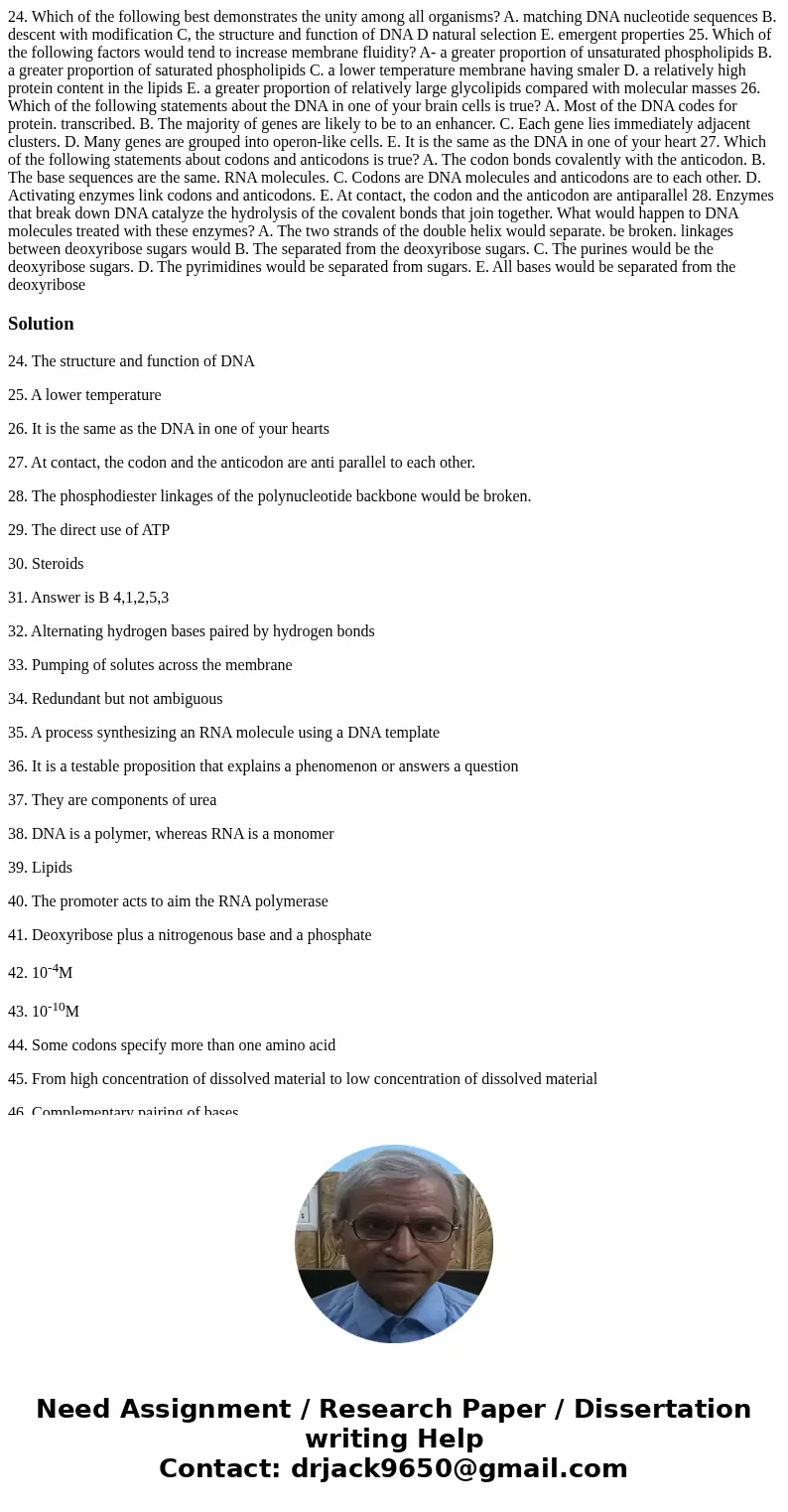24. Which of the following best demonstrates the unity among all organisms? A. matching DNA nucleotide sequences B. descent with modification C, the structure and function of DNA D natural selection E. emergent properties 25. Which of the following factors would tend to increase membrane fluidity? A- a greater proportion of unsaturated phospholipids B. a greater proportion of saturated phospholipids C. a lower temperature membrane having smaler D. a relatively high protein content in the lipids E. a greater proportion of relatively large glycolipids compared with molecular masses 26. Which of the following statements about the DNA in one of your brain cells is true? A. Most of the DNA codes for protein. transcribed. B. The majority of genes are likely to be to an enhancer. C. Each gene lies immediately adjacent clusters. D. Many genes are grouped into operon-like cells. E. It is the same as the DNA in one of your heart 27. Which of the following statements about codons and anticodons is true? A. The codon bonds covalently with the anticodon. B. The base sequences are the same. RNA molecules. C. Codons are DNA molecules and anticodons are to each other. D. Activating enzymes link codons and anticodons. E. At contact, the codon and the anticodon are antiparallel 28. Enzymes that break down DNA catalyze the hydrolysis of the covalent bonds that join together. What would happen to DNA molecules treated with these enzymes? A. The two strands of the double helix would separate. be broken. linkages between deoxyribose sugars would B. The separated from the deoxyribose sugars. C. The purines would be the deoxyribose sugars. D. The pyrimidines would be separated from sugars. E. All bases would be separated from the deoxyribose
24. The structure and function of DNA
25. A lower temperature
26. It is the same as the DNA in one of your hearts
27. At contact, the codon and the anticodon are anti parallel to each other.
28. The phosphodiester linkages of the polynucleotide backbone would be broken.
29. The direct use of ATP
30. Steroids
31. Answer is B 4,1,2,5,3
32. Alternating hydrogen bases paired by hydrogen bonds
33. Pumping of solutes across the membrane
34. Redundant but not ambiguous
35. A process synthesizing an RNA molecule using a DNA template
36. It is a testable proposition that explains a phenomenon or answers a question
37. They are components of urea
38. DNA is a polymer, whereas RNA is a monomer
39. Lipids
40. The promoter acts to aim the RNA polymerase
41. Deoxyribose plus a nitrogenous base and a phosphate
42. 10-4M
43. 10-10M
44. Some codons specify more than one amino acid
45. From high concentration of dissolved material to low concentration of dissolved material
46. Complementary pairing of bases
47. Na+
48. Different side chains (R groups) attached to an alpha carbon
49. Conjugation
50. Carbohydrate

 Homework Sourse
Homework Sourse